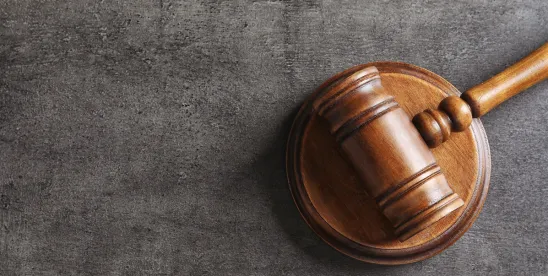In the landscape of confusion after the fall of Chevron deference, it is important to look at where FCC rulings are vulnerable to be disregarded by the court and where the Hobbs Act will apply.
A little background.
Before the Supreme Court overturned 40 years of precedent, under Chevron, U.S.A., Inc. v Natural Resources Defense Council, Inc. (1984) 467 US 837, 843, 104 S Ct 2778, the FCC was able to interpret vague words within the TCPA to provide meaning in line with Congress’ intentions. For example, the FCC has provided clarity into debt collection calls and calls falling under an established business relationship.
Under the Administrative Order Review Act (or Hobbs Act) (28 USC §§2341–2351) those FCC rulings were binding. Initially in Carlton & Harris Chiropractic, Inc. v. PDR Network, LLC, the Fourth Circuit held that pursuant to the Hobbs Act, district courts did not have jurisdiction to consider the “validity” of administrative rulings.
The ever-moving line going forward will be which courts decide to recreate the wheel and which do not.
The New York district court has looked to the plain language of the TCPA.
As shown in Cacho v. McCarthy & Kelly 2024 WL 3293628 (S.D.N.Y. July 3, 2024), the district court went through extensive analysis to discuss whether cellular phones were considered “residential subscribers.” In the end, the Cacho court came to the same conclusion as the FCC by focusing on the plain meaning of the language.
At this time, there is no ruling at the appellate level in the Second Circuit and as such Cacho holds limited precedent.
The Fourth Circuit is nonconforming. This creates variance in the rulings across the Fourth Circuit and lower courts.
In the ongoing saga of the PDR Network, drama took a turn when the Fourth Circuit held that FCC interpretive rulings that lack notice and comment were not entitled to Hobbs Act or prior Chevron deference. Instead, the district court could consider the rulings and give them credit if it was due.
As it pertained to plain language. The Fourth Circuit in Career Counseling, Inc. v. AmeriFactors Financial Group, LLC, 910F.4th 202 (4th Cir. 2024), sought to determine whether online fax services qualified as a “telephone facsimile machine” within the meaning of the TCPA provision that prohibits the sending of unsolicited advertisements by fax. The Fourth Circuit Court, agreed that “based on the plain statutory language, rather than any sort of deference to the AmeriFactors FCC Ruling — that an online fax service does not qualify as a ‘telephone facsimile machine’ under the TCPA.” The Fourth Circuit agreed with the district court, which found that under the Hobbs Act it was without jurisdiction and thus, bound to the FCC ruling. Essentially, “upon assessing the relevant factors, the court concluded that it was “required to find that the [AmeriFactors FCC Ruling] is entitled to Hobbs Act deference.”
At this stage, the judicial system seems like a herd of cattle that is on a stampede. No direction or clear path.
Like Cacho, some decisions align closely with FCC rulings, especially when statutory definitions are clear and easy to apply. However, divergence exists. At least in the Fourth Circuit, courts may depart from FCC interpretations if they find them ambiguous or inconsistent with the TCPA.
The Hobbs Act is the guiding light that seeks to strike balance between uniformity and judicial review. At this stage, some alignment persists but without Chervron deference, courts have greater latitude to assess agency decisions. Moving forward, the Hobbs Act will play a pivotal role in maintaining consistency.




 />i
/>i

